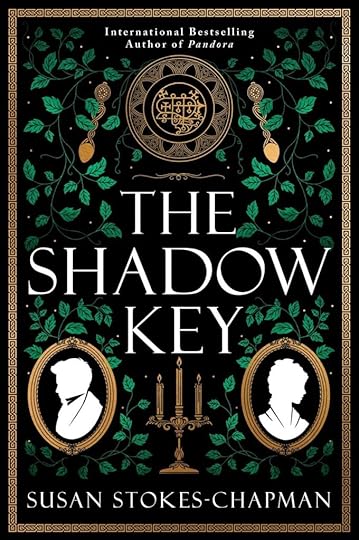Review: The Shadow Key by Susan Stokes-Chapman

The Shadow Key by Susan Stokes-Chapman is another 18th century tale of mystery and magic akin to the author’s debut Pandora. I view Stokes-Chapman’s work in a similar aesthetic and sensibility to my own writing in blending historical fiction with speculative, gothic, and/or magical elements. The Shadow Key takes readers to the wild and beautiful countryside of Wales, where the remote community is both very insular and superstitious.
Dr. Henry Talbot arrives at the Plas Helyg estate to tend its infirmed mistress and is soon met with distrust and dislike from the locals who are suspicious of the English not only for the greater historical context, but also because of the English lords who have pillaged Wales’ mines for their own gain while the local communitie suffers. Henry and Linette of Plas Helyg are quickly drawn into a mystery surrounding the death of the previous village doctor, Linette’s mother’s illness, Linette’s cousin’s dark secrets and exploitation of the mines, and a mysterious symbol that keeps turning up, inevitably pointing to the Hellfire clubs of 18th century London.
The Shadow Key‘s mystery kept me engaged as I guessed throughout the narratives’ unfolding who was responsible for what, and to what end. The complex web of mystery and intrigue, blended with the occult, reminded of Laura Shepherd-Robinson’s The Square of Sevens. Some of my predictions were corrects, others not. While I admire the author’s writing style in creating a certain aesthetic, I found the end of TSK to be quite exposition heavy. With a large web of mystery and every loose thread to be accounted for, there were two scenes at the end that encompassed two adversaries detailing their entire grand plan which were quite mustache twirling villain moments. However, I get wanting the reader to understand the how and the why of all the threads at play. The author’s note states that she scrapped 100k words during revision, and I can discern a few sections of summarization of plot points where these cut words may have been diluted to mere mentions. I am not sure whether that was the author’s choice, or the publisher’s (their bottom line tends to not like long word counts.)
If you enjoyed Pandora, you will enjoy the TSK. If you have not read Pandora, I would still recommend TSK as an engaging historical mystery with speculative sprinklings.



